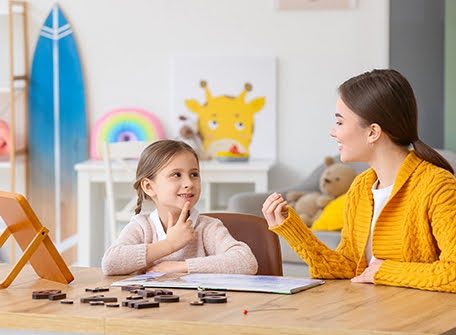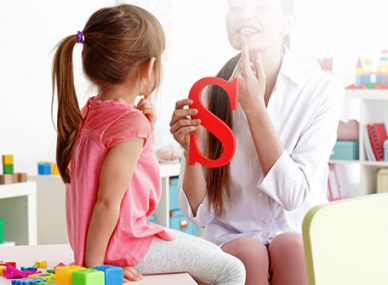Hello parents! How is your toddler doing? Is your little one finally speaking a few words?
See, as parents, we often wonder, “When should my toddler start talking?” and “Is it normal for them to be a late talker?” Well, speech development may vary from one toddler to another. However, if you see, that your little one is taking too much time to form words or comprehend what others are saying, it’s worth visiting the best pediatric speech therapist.
This blog gives you simple insights and expert tips on your toddler’s speech development.
When to Expect the First Words from Your Toddler?
By their first birthday, most toddlers learn to say two words consistently, often being “mama” and “dada.” When they reach 15 months, another word or two is added, along with lots of proto-declarative pointing. And, most 18-month-old toddlers can say at least six words. Language skills, on the other word, really take off between 18 months and 2 years. Toddlers learn to say several two-word phrases and about 50 individual words by age two.
How to Encourage Your Toddler to Talk?
Parents should remember that creating talking opportunities is the real key. So, you can place a favorite toy out of reach and wait for your toddler to ask for it. If you see, their point instead of talking, gently encourage them by saying, “Do you want the red car? Here is the red car.” Check what your toddler is looking for during activities like snack time, and wait until they ask for it.
Another way you can engage your kids is playing games. For example, during dressing time, forget to put on their shirts, and let them catch your mistake. Encourage their efforts and encourage them to talk. This will slowly expand their vocabulary, focusing on their interests.
Simple Strategies Suggested by our Speech Therapist for Speech Development
Make Words Bigger – You can engage your toddler in conversations by expanding their vocabulary. How? Here’s an example – if they mention “car,” respond with enthusiasm, and add more words like – “Yes, a big, blue car. It goes vroom vroom.” This simple act helps them connect more and more words and use them in other conversations. This simply encourages expressive language development.
Imitate – When your toddler makes an effort to say a word, mirror their attempt. Meaning, you have to be an active listener and encourage them to imitate you. Through this imitation process, their language skills will naturally grow, because they will try to use words that you use. This will foster a positive learning environment.
Don’t judge- Focus on positivity when your toddler communicates. Meaning, that if they mispronounce a word, refrain from correction and instead repeat it in a positive manner. For instance, if they say “elephant” incorrectly, respond affirmatively with, “Yes, elephant.” This is a gentle approach that nurtures their confidence and willingness to express themselves.
Label Your Praise – As a parent, this is your vital duty to offer specific praise to reinforce good behavior. Don’t just use terms like “Good job”. Rather, acknowledge their efforts with detailed feedback such as “Nice job saying please” or “Nice job saying thank you.” This targeted praise not only recognizes their achievements but also encourages positive communication habits.
Be Quick to Respond – Learn to respond promptly to your toddler’s words and gestures. Quick responses show them that their attempts are valued. This creates a supportive environment for language development. This responsiveness helps strengthen the connection between words and their corresponding actions. As a result, your toddler makes improvements in overall communication skills.
Reading Together for Speech Development
Parents are busy because of piles of work. But no matter how busy you are, always try to allocate 30 minutes each day for word-building play. This actively engages toddlers with books by pointing to pictures, asking questions, and helping your toddler describe what they see. You can make reading a fun and interactive experience.
When to Seek Help for Speech Therapy for Toddlers?
Late talking is relatively common, with around one in five children experiencing it. Meaning, in some cases, a toddler might need speech therapy. For example, if your toddler is 20 months old and you see him/her use fewer than 20 words, you need to consult a speech therapist. Or, if your toddler is 24 months old, and you see he/she is not using at least 50 words, then you need to consult the best speech therapist in Dubai. Remember, early identification and intervention can make a significant difference.
Hope AMC – Your Partner in Speech Therapy
If you have concerns about your toddler’s speech development, Hope AMC offers tailored speech therapy in Dubai for children of all ages.
Book a call now to discuss your child’s needs and take a positive step towards supporting their speech journey.
So, don’t wait! Call us or visit our clinic in Dubai now!




